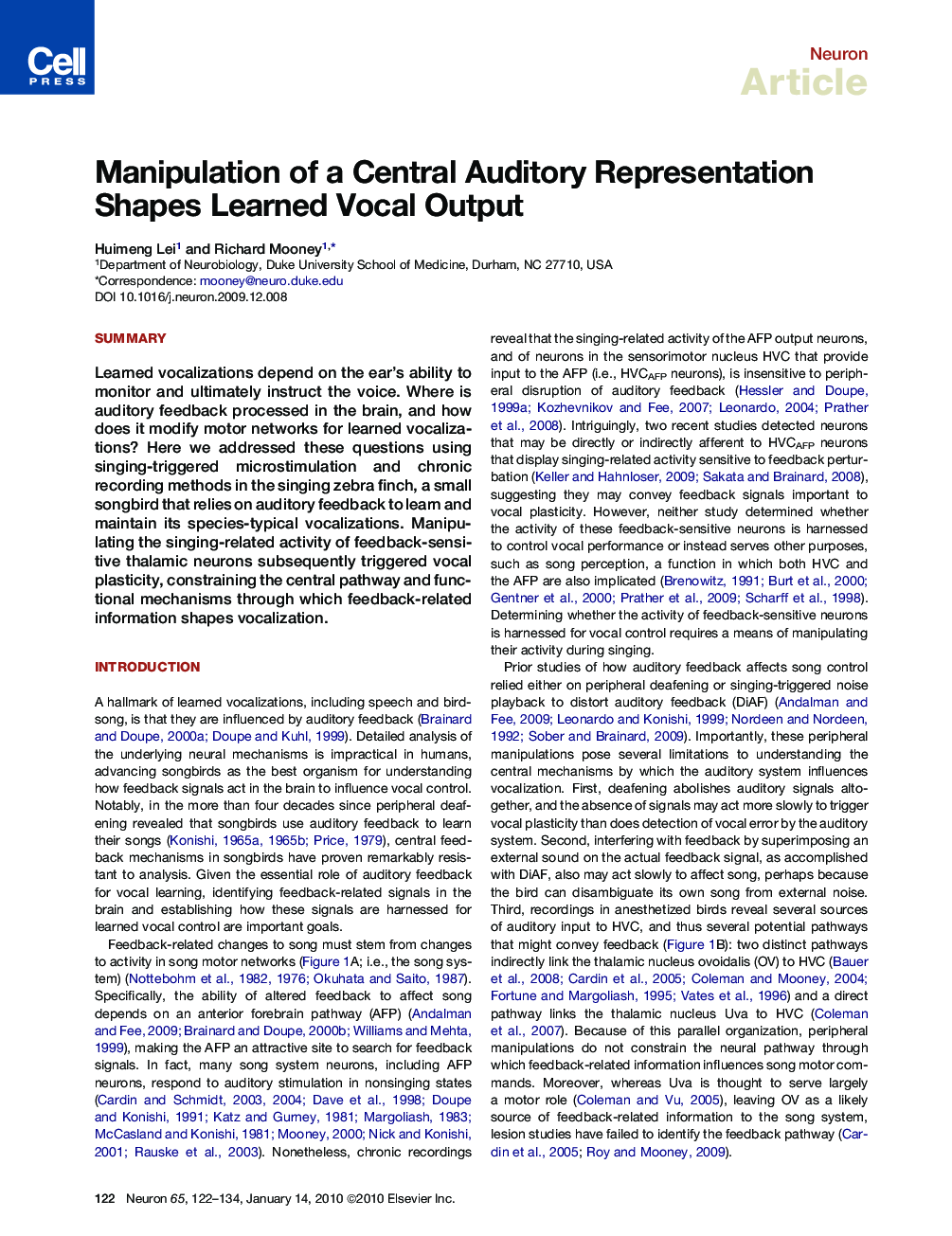| Article ID | Journal | Published Year | Pages | File Type |
|---|---|---|---|---|
| 4321650 | Neuron | 2010 | 13 Pages |
SummaryLearned vocalizations depend on the ear's ability to monitor and ultimately instruct the voice. Where is auditory feedback processed in the brain, and how does it modify motor networks for learned vocalizations? Here we addressed these questions using singing-triggered microstimulation and chronic recording methods in the singing zebra finch, a small songbird that relies on auditory feedback to learn and maintain its species-typical vocalizations. Manipulating the singing-related activity of feedback-sensitive thalamic neurons subsequently triggered vocal plasticity, constraining the central pathway and functional mechanisms through which feedback-related information shapes vocalization.PaperFlick To view the video inline, enable JavaScript on your browser. However, you can download and view the video by clicking on the icon belowHelp with MP4 filesOptionsDownload video (25179 K)
► Finding a central representation of vocalization-related auditory feedback ► Manipulating the central feedback representation triggers vocal plasticity ► The vocal plasticity effect is delayed in onset and temporally precise ► These findings identify a synaptic linkage between auditory and vocal systems
